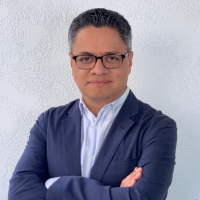Freedom of Expression in Mexico: Analyzing the Impact of the Telecom Reform

In March 2013, President Enrique Peña Nieto introduced a proposal to reform government regulations of the communications and media sectors. In 2014, Mexico’s Congress passed the final version of the telecommunication reform bill and it was signed into law on July 14th. As one of the major reforms that emerged from the “Pacto por Mexico,” the passage of the law constitutes a significant breakthrough for the Peña Nieto administration’s structural reform agenda and has the potential to significantly alter Mexico’s media landscape, particularly through a strengthened regulatory framework charged with curtailing media monopolies. However, it has also generated substantial domestic and international debate regarding its potential effects on citizen privacy and government surveillance. A panel of experts discussed the telecommunications reform and its implications for freedom of expression, as well as the ongoing debate about the reform’s secondary legislation.
Event Summary:
Freedom of expression is an important issue discussed in Mexico today. With the signing into law of President Enrique Pena Nieto’s telecommunications reform bill on July 14, freedom of the press is likely to be impacted. To discuss the implications of reform for freedom of expression, as well as the ongoing debate about the reform’s secondary legislation, the Woodrow Wilson Center’s Mexico Institute, in collaboration with Freedom House, hosted a panel discussion, Freedom of Expression in Mexico: Analyzing the Impact of the Telecom Reform, on July 31, 2014.
According to Freedom House’s 2014 Freedom of the Press Report, Mexico ranks as a “not free” country, joining the ranks of countries such as Ecuador, Cuba, and Venezuela.[i] Freedom House attributes Mexico’s low ranking to the country’s continuing high rates of violence, weak institutional framework (jurisdictional weaknesses, insufficient resources and funds, and lack of transparency), mistrust between society and journalists, and limited ownership of the media industry.[ii] David Kramer, President of Freedom House, explained that 130 journalists have died since 2011 and that conflict and insecurity remain some of the greatest human rights challenges in Mexico. Pena Nieto’s reform legislation aims to make the telecommunications sector more competitive, dividing the monopolistic industry dominated by America Movil and Televisa, and strengthen freedom of expression and access to information.
Director of the Americas Program at Freedom House, Mariclaire Acosta, highlighted five challenges to freedom of expression in Mexico originally expressed by Catalina Botero in an interview with El Pais.[iii] The five challenges were: 1.) persistent violence against people exercising their freedom of expression, 2.) restrictive laws against freedom of expression (criminal codes for instance are still used to intimidate journalists) 3.) indirect censorship through the power of the state, 4.) time-consuming and difficult access to information, and 5.) low diversity and pluralism of expressions in the media.[iv] Ms. Acosta also stated that only 43 percent of the population has access to internet. She mentioned that Freedom House works to build capacity and generate pressure to address human rights issues in Mexico, but that there is a long way to go given the country has an impunity rate of 89 percent.
Omar Rabago, Director of the National Center for Special Communication A.C., detailed how the telecommunication reforms came about and some of the issues that can be expected. He suggests the reform happened rather quickly, and that very few perspectives for the telecommunication sector were actually shared and addressed. He argued that more time may have been necessary to build a more productive framework. Mr. Rabago suggested that public policies should focus on promoting a greater diversity of media platforms and strengthening industry competition.
Mexican journalist Martha Olivia Lopez described that she was threatened three years ago by the Zetas and Gulf cartels and advocated for greater support for “community radio stations.” Local radio stations play a pivotal role in broadcasting information to greater society, especially in smaller, non-urban districts. Ms. Lopez also provided a critique of past reforms, stating the Government of Mexico changes laws regularly, but “nothing really changes.”
Ariel Moutsatsos-Morales, Minister for Public Affairs at the Embassy of Mexico in the United States, challenged Freedom House’s ranking of Mexico as a “not free” country. He suggested Freedom House should differentiate countries based on the actors or entities that threaten freedom of expression. He emphasized that the Government of Mexico is largely supportive of strengthening freedom of expression, whereas other governments of the world are outwardly oppressive. He also emphasized that Mexico does not have as high rates of violence as other countries, and that competition in the media industry affords sufficient press coverage throughout the country.
In response to Mr. Moutsatsos-Morales’ perspectives, panelists provided examples of judicial and law enforcement authorities at the state and local level that repress coverage and threaten journalists. Others expressed that qualitative measures, rather than quantitative, should be assessed when looking at the security issue in Mexico. A view shared by Andrew Selee, Executive Vice President and Senior Advisor to the Mexico Institute, and Mariclaire Acosta was that the issue at hand is in part a consequence of Mexico’s democratic transition.
The effects of the telecommunication reforms are yet to be realized, but the debate over freedom of expression and its relation to the new legislation suggests there is room for improvement in creating effective and comprehensive public policies to deal with freedom of expression in Mexico.
By Alejandro Garcia
[i] http://freedomhouse.org/report/freedom-press/freedom-press-2014#.U2JHiyhXguN
[ii] http://www.freedomhouse.org/blog/factors-decline-press-freedom-mexico#.U9pjBJI_t8E
[iii] http://internacional.elpais.com/internacional/2014/07/26/actualidad/1406330612_575671.html
[iv] http://internacional.elpais.com/internacional/2014/07/26/actualidad/1406330612_575671.html
Speakers



Hosted By

Mexico Institute
The Mexico Institute seeks to improve understanding, communication, and cooperation between Mexico and the United States by promoting original research, encouraging public discussion, and proposing policy options for enhancing the bilateral relationship. A binational Advisory Board, chaired by Luis Téllez and Earl Anthony Wayne, oversees the work of the Mexico Institute. Read more
